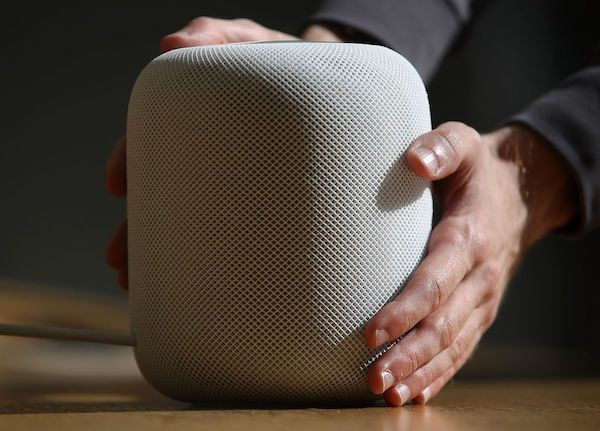It Could Be Too Late For Apple's HomePod

Apple (NASDAQ:AAPL) often says that it doesn't care about being the first player in a new market, as long as it can become the best once it gets there. But that's little consolation when it comes to markets where competing platforms are able to lock consumers in, such as the booming smart speaker market. Apple only entered the smart speaker space last year with the HomePod, which hasn't sold well due to its high price tag and limited support of third-party music-streaming services.
Two fresh research reports help illustrate the uphill battle that the Mac maker now faces.
Smart speaker owners are incredibly loyal
Market researcher Park Associates has released a study today that shows 97% of smart speaker households have just one brand of smart speaker, suggesting that consumers are very loyal to brands and generally stick to the platform they initially invest in. Amazon.com (NASDAQ:AMZN) and Alphabet (NASDAQ:GOOG) (NASDAQ:GOOGL) subsidiary Google have already established strong footholds in the market, thanks in large part to the affordable Echo Dot and Google Home Mini, both of which cost around $50.
Smart speaker adoption soared in 2018, and expanding into a household with multiple devices is low-hanging fruit for vendors. "Smart speaker owners are increasingly adopting multiple devices in various rooms of the household," Park Associates senior analyst Kristen Hanich said in a statement. "Device makers can leverage this tendency toward repeat and extra purchases to bundle new and premium products with smart speaker sales."
Park Associates estimates that two-thirds of U.S. households have an Echo, with nearly a third owning a Google Home.
A second opinion
Separately, Consumer Intelligence Research Partners (CIRP) also put out new estimates today. The U.S. installed base of smart speakers has now reached 66 million, up from 53 million in the third quarter, according to the report. CIRP's data, which is derived from a survey of 500 U.S. consumers, differs slightly from Park Associates.
CIRP estimates that Amazon represents 70% of the installed base, followed by Google at 24%. Apple's HomePod has grabbed just 6% of the installed base. Apple is unlikely to grow that share until it releases a more affordable device. A "HomePod Mini" is reportedly in the works, but is expected to cost around $150 to $200 -- still priced at a noticeable premium compared to the competition.
"Amazon and Google both have broad model lineups, ranging from basic to high-end, with even more variants from Amazon," said CIRP co-founder Josh Lowitz. "Apple of course has only its premium-priced HomePod, and likely won't gain significant share until it offers an entry-level product closer to Echo Dot and Home mini."
The longer that Apple waits to release an affordable HomePod Mini, the greater its challenge will be, as Amazon and Google only continue to gain momentum.
This article originally appeared in the Motley Fool.
Evan Niu, CFA owns shares of Amazon and Apple. The Motley Fool owns shares of and recommends Alphabet (A shares), Alphabet (C shares), Amazon, and Apple. The Motley Fool has the following options: long January 2020 $150 calls on Apple and short January 2020 $155 calls on Apple. The Motley Fool has a disclosure policy.




















